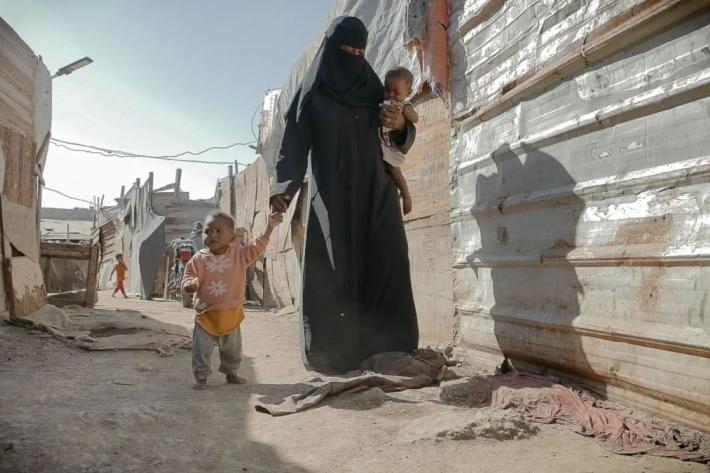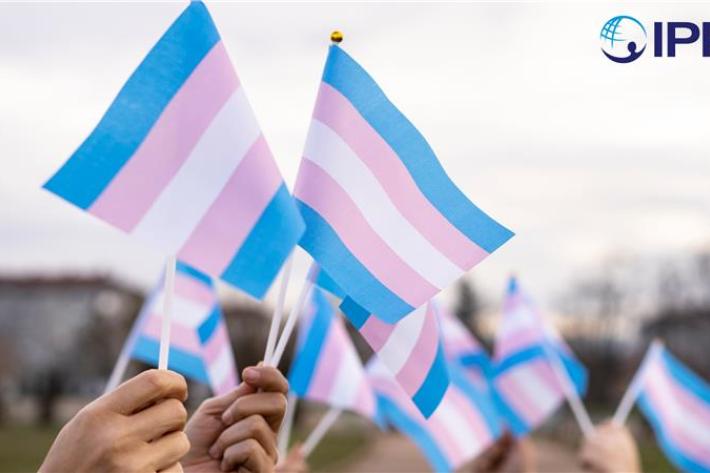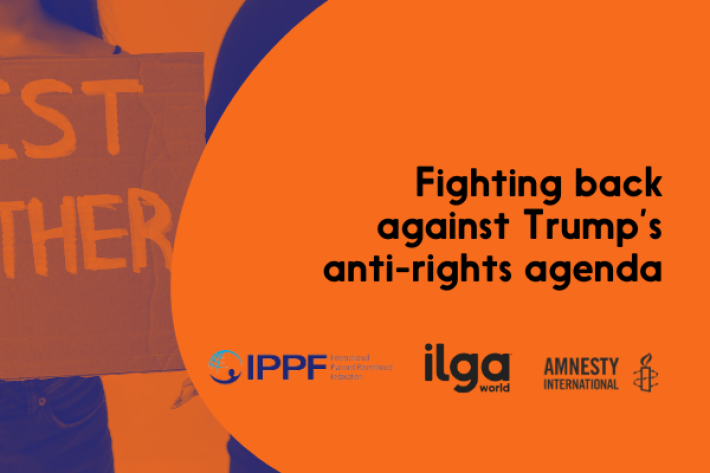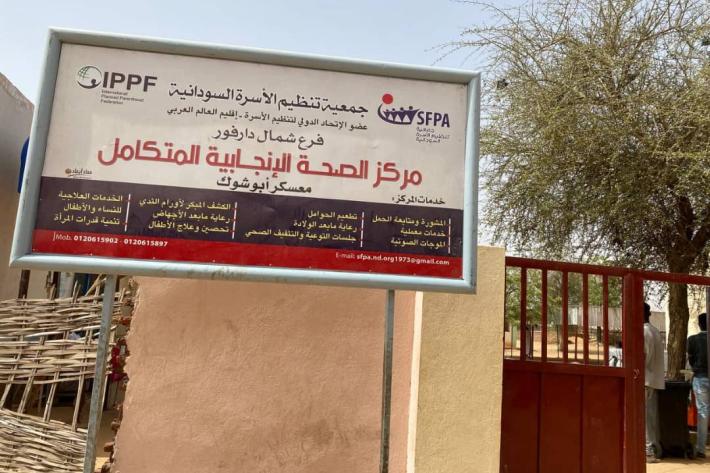
Spotlight
A selection of news from across the Federation

IPPF announces the launch of the call for applications for the post of Director General
The Director-General will play a crucial role in shaping IPPF’s strategic and operational direction, ensuring strong governance, transparency, inclusion, and collaboration.
Filter our news by:

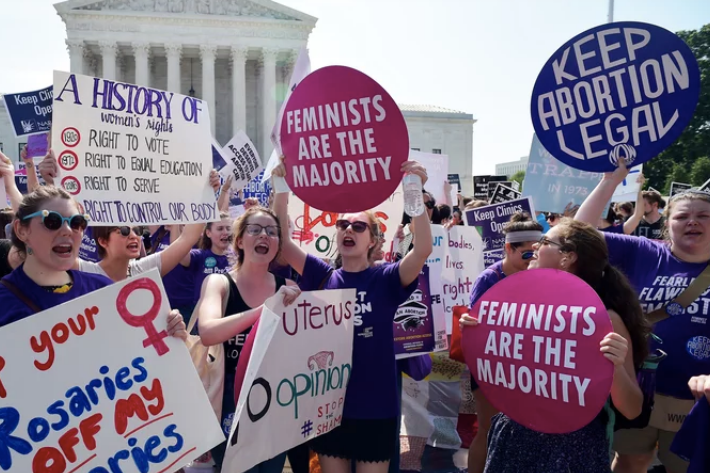
| 12 July 2019
Sky News drops term “heartbeat bill” after healthcare coalition call
Sky News says it will stop using the term “heartbeat bill” to describe attempts in the US to introduce six-week abortion bans, after conceding the phrase is biased. A coalition of five leading reproductive healthcare organizations – the Federation of Gynecologists and Obstetricians (FIGO), International Planned Parenthood Federation (IPPF), Marie Stopes International (MSI), Planned Parenthood Federation of America (PPFA) and the Royal College of Obstericians and Gynaecologists (RCOG) wrote to Sky News about its use of the phrase. It pointed out that both RCOG and the American College of Obstericians and Gynecologists had stated clearly the phrase was medically inaccurate, and that the language was partial, coined by opponents of access to safe and legal abortion to frame the debate on their own terms. The alliance also pointed out that other media, such as The Guardian, had already announced it would drop the description. Sky News consulted its US team before telling the coalition that it would stop using the term. In his reply Sky’s Head of Home News, Peter Lowe, said: “We agree that the term “heartbeat bill” is not an impartial expression, but designed to support a particular point of view…our plan would be to adopt “Six week abortion ban”, or similar phrase.” IPPF Director-General Dr Alvaro Bermejo said: “We’re very grateful that a news organization with the reach and reputation of Sky News has thought so hard about its use of language and decided to stop using this medically inaccurate and biased phrase. Words matter, and all journalists need to pause, think and avoid simply parroting terms designed to skew opinion, especially when they are – as in this case – medically wrong as well as partial. It’s up to major news providers, who make much of the trust placed in them by audiences and their commitment to impartiality, to see through these attempts by opponents of access to safe and legal abortion to play them.” Sky News’ move follows a decision by BBC News not to rule out using the phrase, because it was already “in common usage.” Dr Bermejo said: “Sky News’ decision shows that news does not have to simply follow where it is led. We would ask BBC News to think again about its reluctance to rule out using partial language.” The group also contacted ITV News and received an assurance from Rachel Corp, its Acting Editor, that if it used “heartbeat bill” at all, it would make clear it was a biased phrase. She said: “We would always aim to make clear the phrase is being used by those campaigning against abortion and would attribute it to them.” Channel 4 News, which does not appear to have used the term, said it had told all its journalists to be aware of the issues it raised. Ben de Pear, Editor of Channel 4 News said: “I note the point you have raised over the use of this term…We have notified editorial staff of the nature of this debate and the particular issues raised by this legislation.” The coalition thanked Sky News, ITV News and Channel 4 News for thinking carefully about the impact of their language. It also confirmed it would contact the BBC’s Director General, Lord Hall, to ask for a meeting about the issue, as BBC News appeared to be out of step with other broadcasters. NOTES: Sky News is available in 127 countries and 102 million homes, according to Sky News International. It is the current RTS News Channel of the Year.
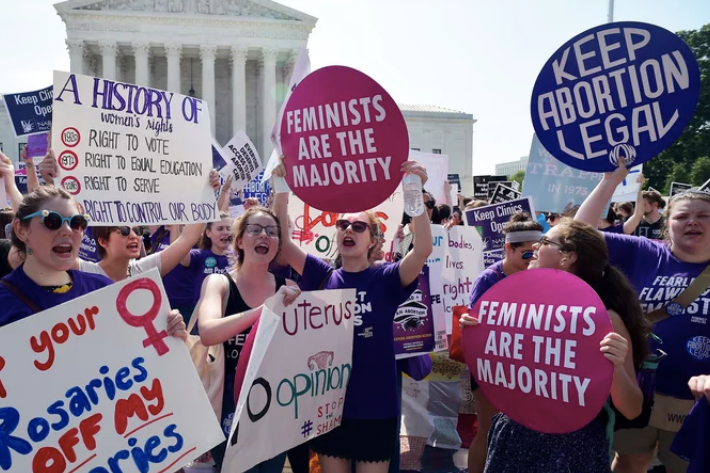
| 26 June 2019
BBC refuses to stop using medically inaccurate and biased language on abortion
The BBC has said it won’t stop labelling attempts to ban abortion after six weeks as “heartbeat bills” – despite conceding the phrase is biased and medically inaccurate. A coalition of four leading reproductive healthcare organisations – the Federation of Gynecologists and Obstetricians (FIGO), International Planned Parenthood Federation (IPPF), Marie Stopes International (MSI) and Planned Parenthood Federation of America (PPFA) wrote to the BBC, demanding it stop using the phrase in its coverage of attempts in some US states to introduce six week abortion bans. In its letter, the coalition pointed out: This description is biased, coined by opponents of safe and legal abortion in an attempt to frame the debate in their own emotional and empathetic terms. The American College of Obstetricians and Gynecologists (ACOG) has stated clearly that the phrase is medically inaccurate. Other news organisations, such as The Guardian, have already announced they would stop using the phrase and replace it with the factual “six-week abortion ban” Adding the words “so-called” or placing the phrase in parenthesises does not address the bias. In her reply, Fran Unsworth, BBC Director of News and Current Affairs said: “I quite understand the point you make about the use of the phrase “heartbeat bill” and we would not aim to adopt it as our own description of the legislation.” But she went on to say the term was “now in common usage” and the BBC would not stop using it. Dr Alvaro Bermejo, Director General, International Planned Parenthood Federation, said: “The BBC can’t concede “heartbeat bill” is a biased and medically inaccurate description and then say it’s going to use it anyway. Saying it is “in common usage” is no excuse, especially when the BBC – which boasted only last week that it has a global weekly audience of 426 million people – shares the blame for spreading it. Language around legal abortion has been weaponised by those who want to deny women access to it and journalists – especially those who work for a news organisation which claims to be impartial and trusted – must wake-up and see they are being played. This phrase was chosen very carefully by people who want to end access to legal abortion and who are exploiting the mainstream media to insert biased language into the common vernacular. It’s designed to hide the devastating impact on women of their plans and skew coverage. The right thing to do is to stop using it. We call on the BBC to think again.” Simon Cooke, Chief Executive Officer, Marie Stopes International, commented: “We are frustrated and disappointed by the BBC’s decision to continue to amplify a phrase which is not only medically inaccurate and overtly emotive, but which can put women’s health and lives at very real risk by increasing stigma. To fall back on ‘common usage’ as a defence legitimises and normalises anti-abortion rhetoric and further extends the chilling effect of restrictive anti-choice policies and views, especially when used by a globally respected and trusted media organisation such as the BBC. It’s sad to see antiabortionists so easily able to manipulate the mainstream media for their own ends.” Dr Leana Wen, President and CEO, Planned Parenthood Federation of America said: “As a physician, I know just how critical it is for people to have the most accurate information about their health care. At this moment when our rights and freedoms are under unprecedented assault, now more than ever, we must stand up to dangerous misinformation. As scientists and public health leaders, we have a responsibility to stand up and reject misleading rhetoric and we call on the BBC to adopt medically accurate and unbiased language.” For more information contact Tia Jeewa at IPPF on 0207 939 8227, or email [email protected]
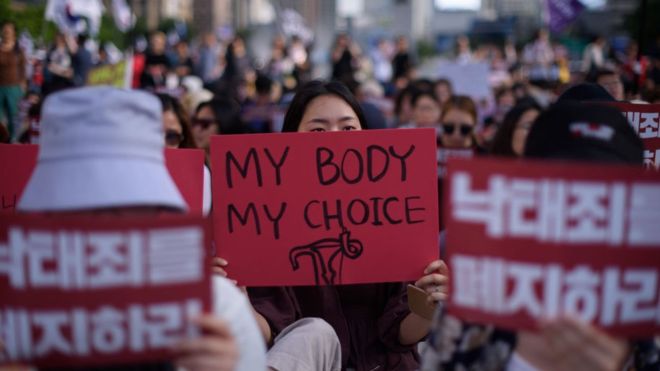
| 11 April 2019
IPPF welcomes South Korea's historic decision to overturn abortion ban
The International Planned Parenthood Federation (IPPF) has welcomed the historic decision made by the South Korean Constitutional Court today overturning a decades-long ban on access to abortion. The court has ordered that the law must be revised before the end of 2020. The current ban – in place since 1953 – criminalises abortion except in cases of rape, incest or risk to health. Women who have abortions and doctors who perform them can be jailed. Dr Alvaro Bermejo, Director General of IPPF said; “This is wonderful news. No women or girl should be coerced through a full pregnancy against her will and no medical professional criminalised for giving care. Extreme laws only fuel unsafe abortions which kill and injury women. I congratulate all the activists, particularly the Korean Women’s Association United, to which the Korea Population Health and Welfare Association (KOPHWA) – IPPF’s Member Association in South Korea – is related, for their united movement and successful advocacy for this change. We are keen to support Korea’s process to put this decision into practice as soon as possible. IPPF has experience of working in countries where similar historic change is taking place, such as Ireland. As a global federation of Member Associations, we can offer support experience and knowledge.” Ms Kyung Ae Cho, Secretary General of KOPHWA said; "It is a moment of momentum for women's health and reproductive health rights. We need systematic efforts to provide Integrated sexual health and reproductive health services for women's health in the future."









